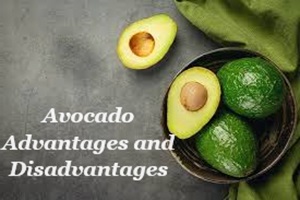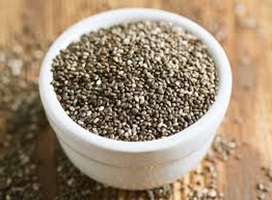Avocado Advantages and Disadvantages
Avocado Advantages and Disadvantages. Please watch:
Avocado is a unique fruit known for its creamy texture and rich flavor.
It’s the fruit of the avocado tree (scientifically known as Persea americana), which is native to Central and South America.
Here’s a closer look at what avocados are:

Avocado Advantages: Description and Characteristics
- Appearance: Avocados are typically pear-shaped or oval, with a rough, leathery outer skin that can vary in color from dark green to almost black. Inside, they have a large central seed surrounded by soft, greenish-yellow flesh.
- Taste and Texture: The flesh of an avocado is smooth and creamy with a subtle, nutty flavor. It has a rich, buttery texture, making it versatile for both savory and sweet dishes.
- Types of Avocados: There are several varieties of avocados, with the most common being the Hass avocado, which has a pebbly skin and is often available year-round. Other varieties include the Fuerte, Bacon, and Reed avocados, which can have different shapes, sizes, and flavors.
Avocado Advantages: Nutritional Profile
Avocados are renowned for their impressive nutritional content:
- Healthy Fats: They are rich in monounsaturated fats, particularly oleic acid, which is known for its heart-health benefits.
- Vitamins and Minerals: Avocados provide a good amount of vitamins such as vitamin K, vitamin E, vitamin C, and several B vitamins, including folate. They are also high in potassium, which is crucial for maintaining healthy blood pressure.
- Fiber: Avocados are a good source of dietary fiber, which supports digestion and helps maintain a healthy gut.
Culinary Uses
- In Salads: Avocado slices or cubes can be added to salads for a creamy texture.
- Guacamole: One of the most popular uses of avocado is in guacamole, a dip made from mashed avocado, lime juice, onions, tomatoes, and spices.
- On Toast: Avocado toast, where mashed avocado is spread on bread, is a trendy and nutritious breakfast or snack.
- In Smoothies: Avocado can be blended into smoothies to add creaminess and boost nutritional value.
- Baking and Desserts: Avocado can be used in baking as a substitute for butter or oil and in desserts like mousse or ice cream.
Health Benefits
Due to its rich nutrient content, avocado offers various health benefits, such as:
- Supporting heart health
- Providing antioxidants that protect against oxidative stress
- Aiding in weight management due to its high fiber content
- Enhancing nutrient absorption from other foods, particularly fat-soluble vitamins like A, D, E, and K
Avocados are a versatile and nutrient-dense fruit, making them a valuable addition to a balanced diet.
Advantages of Avocado
- Rich in Healthy Fats:
- Avocados are high in monounsaturated fats, particularly oleic acid, which is heart-healthy and can help reduce bad cholesterol levels (LDL) while increasing good cholesterol (HDL).
- Nutrient-Dense:
- Avocados are loaded with essential nutrients, including potassium, folate, vitamin K, vitamin E, vitamin C, and B vitamins. Potassium is particularly important for blood pressure regulation.
- High in Fiber:
- Avocados are a good source of dietary fiber, which aids in digestion, helps maintain a healthy gut, and can contribute to weight management by promoting a feeling of fullness.
- Antioxidant Properties:
- Avocados contain antioxidants like lutein and zeaxanthin, which are beneficial for eye health and may help protect against age-related macular degeneration.
- Supports Weight Management:
- The combination of healthy fats and fiber in avocados can help with satiety, making it easier to manage appetite and potentially aiding in weight loss or maintenance.
- Versatile in the Kitchen:
- Avocados can be used in various dishes, from salads and smoothies to toast, dips like guacamole, and even desserts.
Disadvantages of Avocado
- Calorie-Dense:
- Avocados are relatively high in calories due to their fat content. Consuming them in large quantities can contribute to excessive calorie intake, which may hinder weight loss efforts if not balanced with other food intake.
- Potential for Allergic Reactions:
- Although rare, some individuals may have an avocado allergy, leading to symptoms like itching, swelling, or digestive discomfort.
- Expensive:
- Avocados can be costly, especially in regions where they are not locally grown. This can make them less accessible for some people.
- Environmental Impact:
- The high demand for avocados has led to concerns about the environmental impact of their cultivation, including deforestation, water usage, and carbon footprint associated with transportation.
- Potential for Overconsumption:
- Because avocados are often marketed as a superfood, there is a risk of overconsumption, leading to an imbalanced diet if not consumed in moderation.

In summary, while avocados offer numerous health benefits, they should be consumed mindfully, particularly if you are monitoring your calorie intake or concerned about environmental sustainability.


